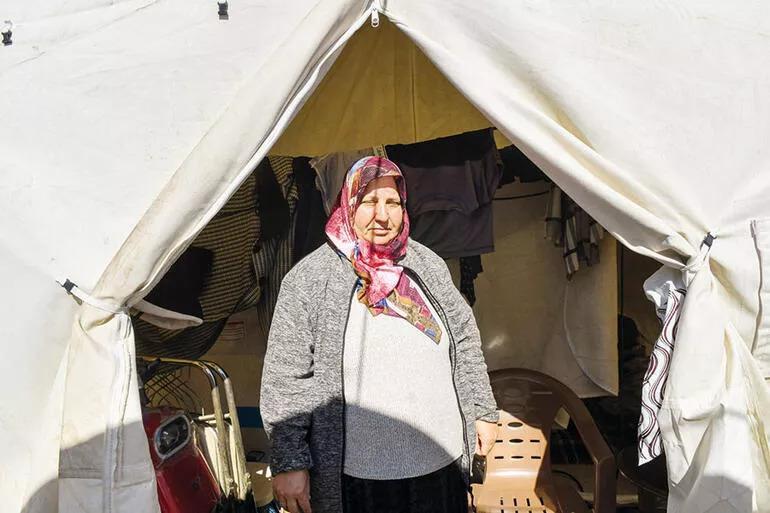Quake survivor women deal with added burdens in tent cities
Mesut Hasan Benli- KAHRAMANMARAŞ

The deadly Feb. 6 quakes in Türkiye’s south have brought misery and sadness in unmeasurable ways, with women, who are hardly able to meet their basic needs while living in the tent cities, feeling an extra burden of staying strong for their children.
After the deadly earthquakes that hit the southern provinces of the country and claimed the lives of over 46,000 people, survivors have been struggling to hold on to life in tent cities and start afresh.
Female earthquake survivors, who are trying to cope with the compelling circumstances of the tent cities, can barely meet basic hygiene needs such as toilets and bathrooms.
Due to the difficulties in easy access to cleaning supplies, women and children are under the threat of catching serious diseases.
In addition to such problems, mothers have to deal closely with the healing process of their children who have been traumatized due to the devastating disaster.
Aygül İntizamoğlu, an earthquake survivor mother, expressed that her 12-year-old son is unable to fall asleep every day until 4:17 a.m., which is the hour of the first earthquake that struck on Feb. 6.
“Living conditions are quite difficult here. However, even these conditions are not a problem for me right now. I am struggling to make my 12-year-old son forget those moments. The child waits for the hour when the earthquake occurred without sleeping,” İntizamoğlu explained.
Gülem Yıldız is another mother who is trying to stand strong for her children.
“We lost 15 members of our family in the earthquakes. Despite this pain, I am trying to stand strong when I am with them. I make a special effort to improve their mental state,” Yıldız noted.
Stating that being a woman in a tent city has its challenges, Yıldız said that women face great problems in terms of accessing toilets and bathrooms.
Emine Çelik, a mother of four children, stated that sometimes they cannot take the meals that are distributed as her husband has heart disease and has to eat healthily.
“That’s why I try to cook in the tent. It’s really hard to cook in a tent. I also take care of the children. One of the biggest problems we have here is washing clothes. We are trying to wash them with our own means. The conditions are very inadequate,” Çelik explained.
Another survivor Filiz Sakıcı also explained that they have also a clothing problem, saying, “There are clothes among the help sent. But this does not reach everyone. We have to wear the same clothes for days.”
Merve Karasun, a 23-year-old anesthetic technician, stated that women in the cities deal with difficulties in meeting sanitary needs as well.
“The issue of underwear emerges as an important problem,” she added.
Psychologist İrem Nur Uçar also stated that women report that they are most concerned about “whether they are safe or not.”
“Trying to stand strong to reduce the effects of the quakes on their children makes this situation more difficult for them,” Uçar noted.
















